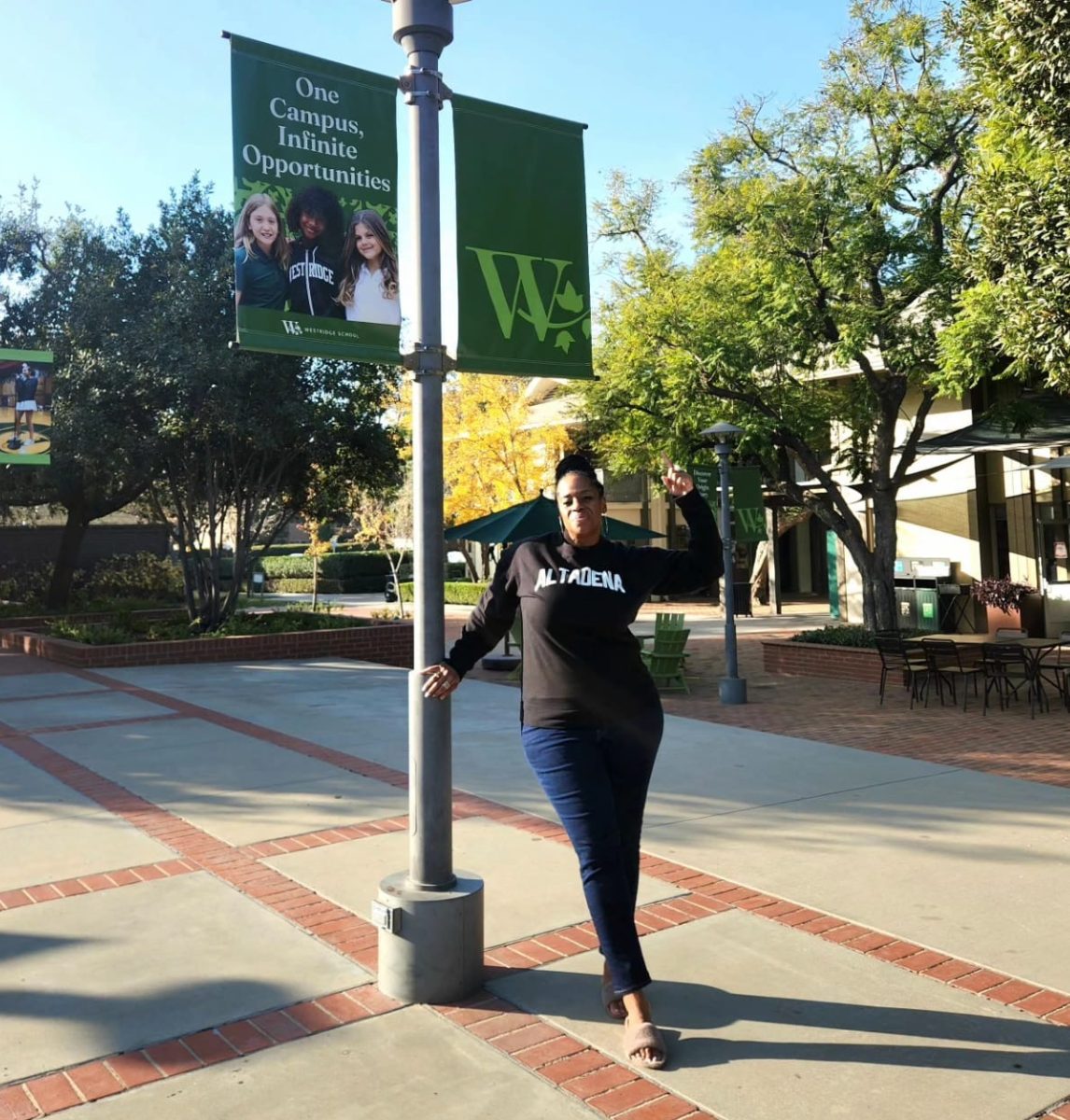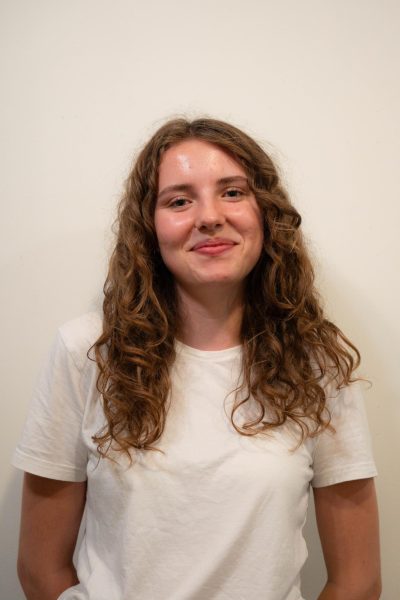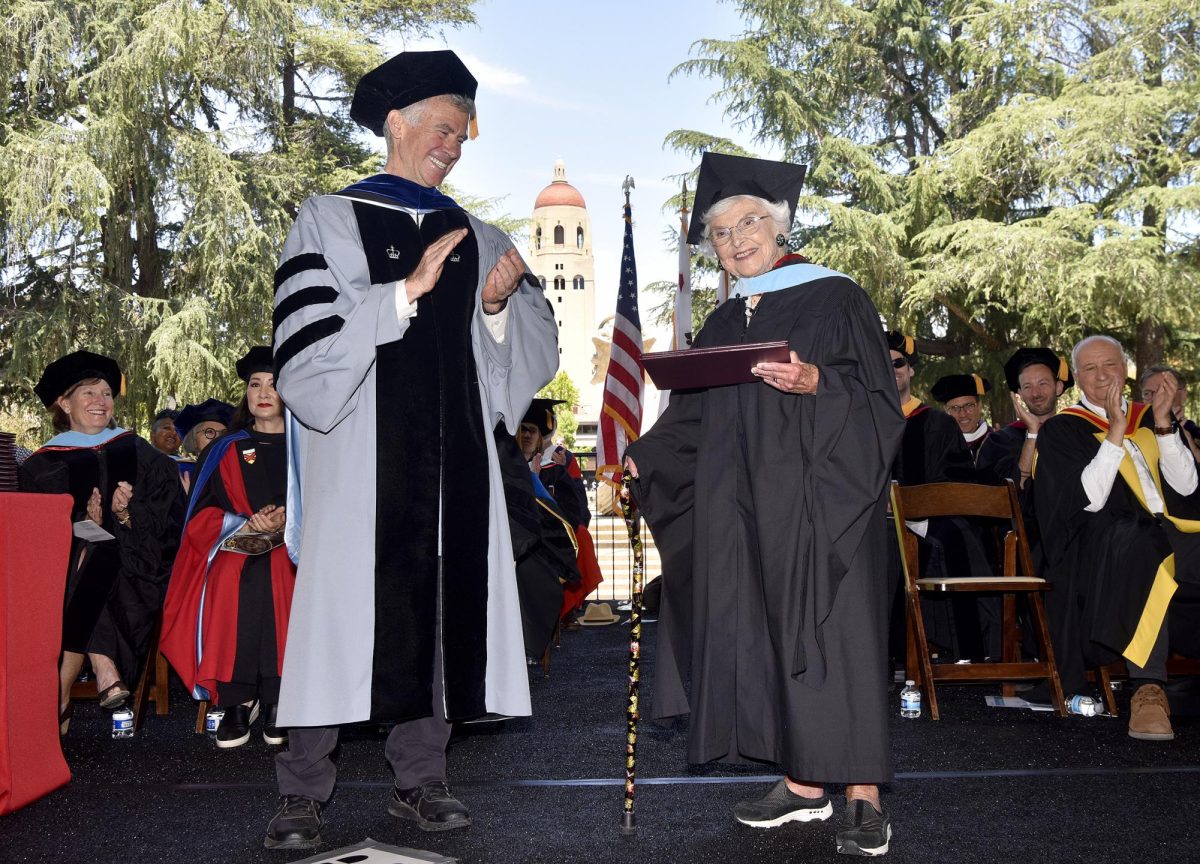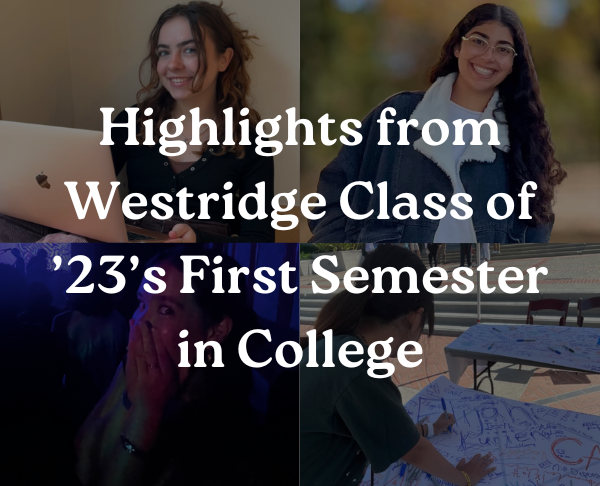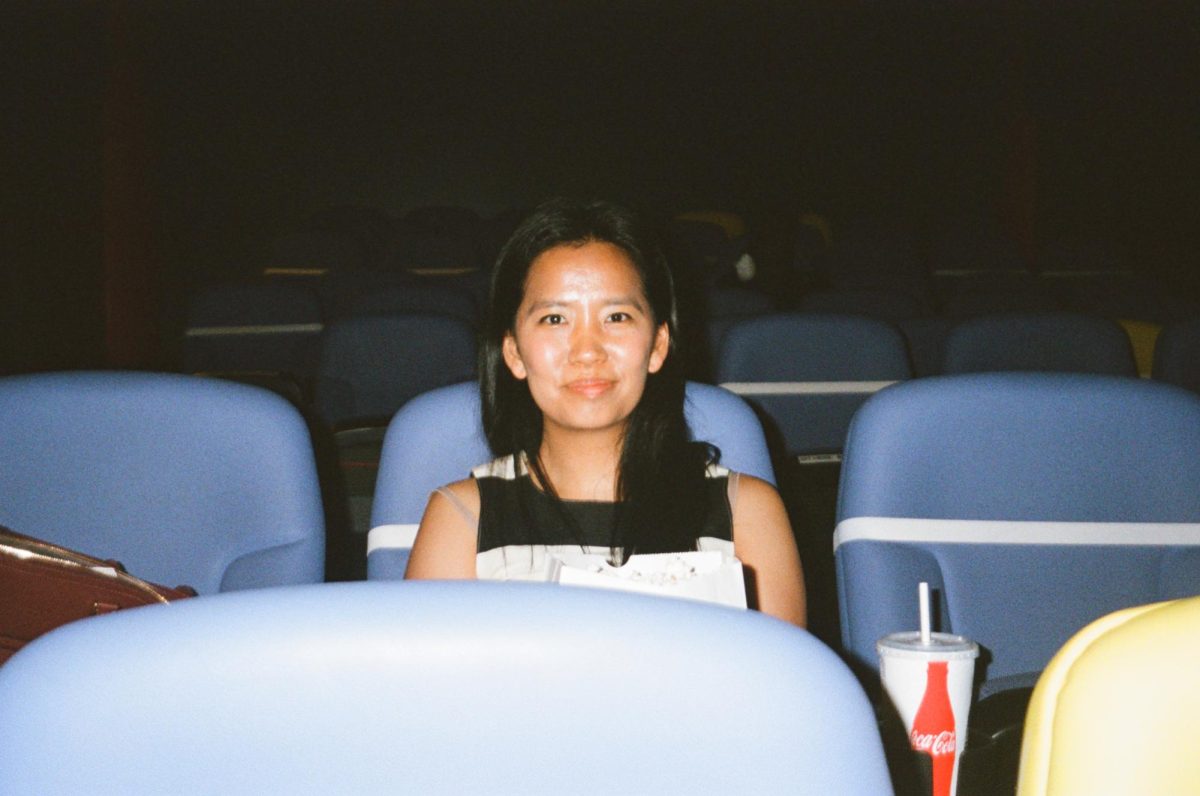Proud alumna and 2023 Mary Lowther Ranney Distinguished Alumna Award Recipient Thembisa Mshaka ’88 returned to Westridge in early December as an award-winning author, creative executive, producer, filmmaker, activist, and voice actor. Since graduation, Ms. Mshaka attributes her achievements to the school and the people she met in her five years at Westridge.
The passion for music and words that inspired Ms. Mshaka’s career began far before she went to Westridge. However, she only discovered that it could be a viable career for her at 17, when she interned at a management company and booking agency for recording artists to pay her bills. “I had no intention of being in entertainment, but once I got there, I loved the work,” Ms. Mshaka said.
While working at the management company, Ms. Mshaka loved working alongside artists she grew up with. Ms. Mshaka’s parents introduced her to blues, jazz and funk artists as a child and her parents’ musical knowledge stayed with her and eventually gave Ms. Mshaka that first job. Some of her favorite albums she has worked on are “The Miseducation of Lauryn Hill” by Ms. Lauryn Hill and “Stillmatic” by Nas. Ms. Mshaka has tenures at Sony Music and BET Networks (Black Entertainment Television).
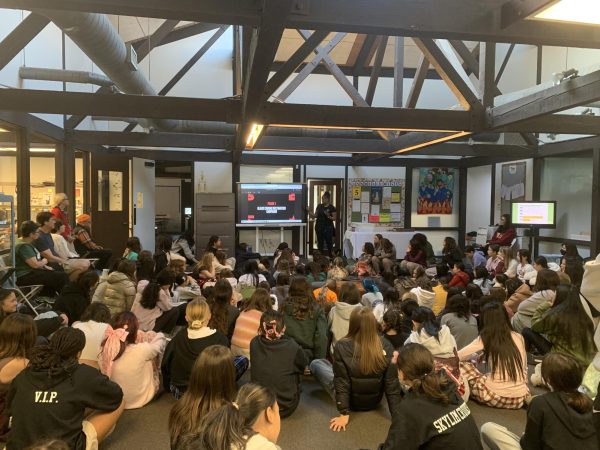
On December 5, Ms. Mshaka came to Westridge during the Middle School morning meeting to share about Black Canvas, a project she was a part of with Black Entertainment Television. BET hired Black muralists all over the country to paint murals in their home cities inspired by one of three phrases: “Where Black culture lives,” “Where Black dreams flourish,” and “Where Black power grows.” Ms. Mshaka wrote the script for a video about Black Canvas which she shared with Middle School students and teachers. The series aimed to highlight and celebrate not only BET but also the artists. The murals stayed up for 8–12 weeks and in those weeks, artists gained exposure and uplifted and beautified their communities. “[Black Canvas] was a way to honor Black viewers…and allow them to experience the beauty of Black art,” Ms. Mshaka said.
Ms. Mshaka has loved art, music, and especially words all her life. Before she could understand what journaling was, Ms. Mshaka kept a diary where she played around with words and made up slang and her own way of speaking. “I just thought it was fun,” she said.
However, Ms. Mshaka didn’t see writing as more than fun until she arrived at Westridge and met her ceramics teacher, Juanita Jimenez, a name that elicited aww’s, claps, and an “Icon!” at the Middle School presentation. “Juanita Jimenez gave me permission to be a creative—she made it not just interesting and exciting but [also] made it cool,” said Ms. Mshaka.
Juanita prompted Ms. Mshaka to see that she could “make a living creating art, being passionate, being creative, make a living from your own ideas no matter how non-traditional or ambitious those ideas might seem.”
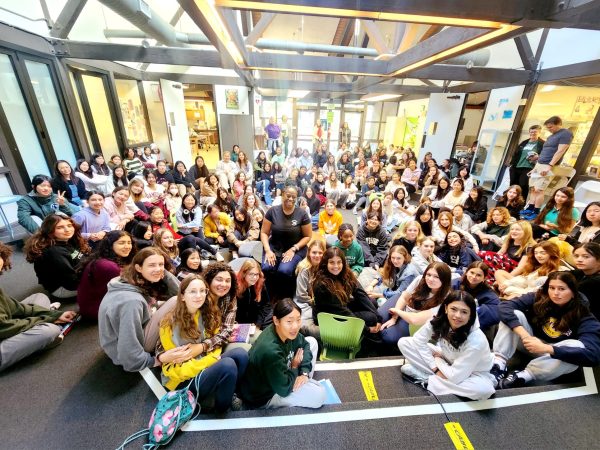
Westridge not only taught Ms. Mshaka that she could be a creative but also that she could be powerful. “All women’s education has been formative for me in understanding who I am as a person and as a leader,” she said. Ms. Mshaka loved the all-girls education at Westridge so much that she later attended Mills, an all-women’s college, where she became the student body Vice President.
“That was when I understood that the actions that I take have an impact, and that I could change the world. And that started at Westridge,” she said.
Westridge taught Ms. Mshaka that she could change the world and she brought this belief into her everyday life. “I take an activist stance in the way that I live,” she said. Ms. Mshaka tries her best to support and advocate for causes she believes in, especially for women and people of color. She works closely with Black Girls Rock, a non-profit organization focused on empowering women and girls of color.
Activism presents itself in everything from the businesses she supports to how she raised her son to “respect, honor, and support” women. Ms. Mshaka said, “I feel like it’s my responsibility to reach back and share what I’ve learned, share what I know, and share what I’ve accomplished in order for [others] not to have to deal with the same struggle that I had to.”
Ms. Mshaka also feels responsible for the new generation of students and is a strong advocate for Westridge. “[During my time at Westridge] I felt confident, I felt safe, and I felt seen, even though I was the only Black girl in my class at the time, as a woman, as a young girl, I felt affirmed,” she said.




























![Dr. Zanita Kelly, Director of Lower and Middle School, pictured above, and the rest of Westridge Administration were instrumental to providing Westridge faculty and staff the support they needed after the Eaton fire. "[Teachers] are part of the community," said Dr. Kelly. "Just like our families and students."](https://westridgespyglass.org/wp-content/uploads/2025/03/dr.-kellyyy-1-e1748143600809.png)






















